- News
- Reviews
- Bikes
- Components
- Bar tape & grips
- Bottom brackets
- Brake & gear cables
- Brake & STI levers
- Brake pads & spares
- Brakes
- Cassettes & freewheels
- Chains
- Chainsets & chainrings
- Derailleurs - front
- Derailleurs - rear
- Forks
- Gear levers & shifters
- Groupsets
- Handlebars & extensions
- Headsets
- Hubs
- Inner tubes
- Pedals
- Quick releases & skewers
- Saddles
- Seatposts
- Stems
- Wheels
- Tyres
- Tubeless valves
- Accessories
- Accessories - misc
- Computer mounts
- Bags
- Bar ends
- Bike bags & cases
- Bottle cages
- Bottles
- Cameras
- Car racks
- Child seats
- Computers
- Glasses
- GPS units
- Helmets
- Lights - front
- Lights - rear
- Lights - sets
- Locks
- Mirrors
- Mudguards
- Racks
- Pumps & CO2 inflators
- Puncture kits
- Reflectives
- Smart watches
- Stands and racks
- Trailers
- Clothing
- Health, fitness and nutrition
- Tools and workshop
- Miscellaneous
- Buyers Guides
- Features
- Forum
- Recommends
- Podcast
news
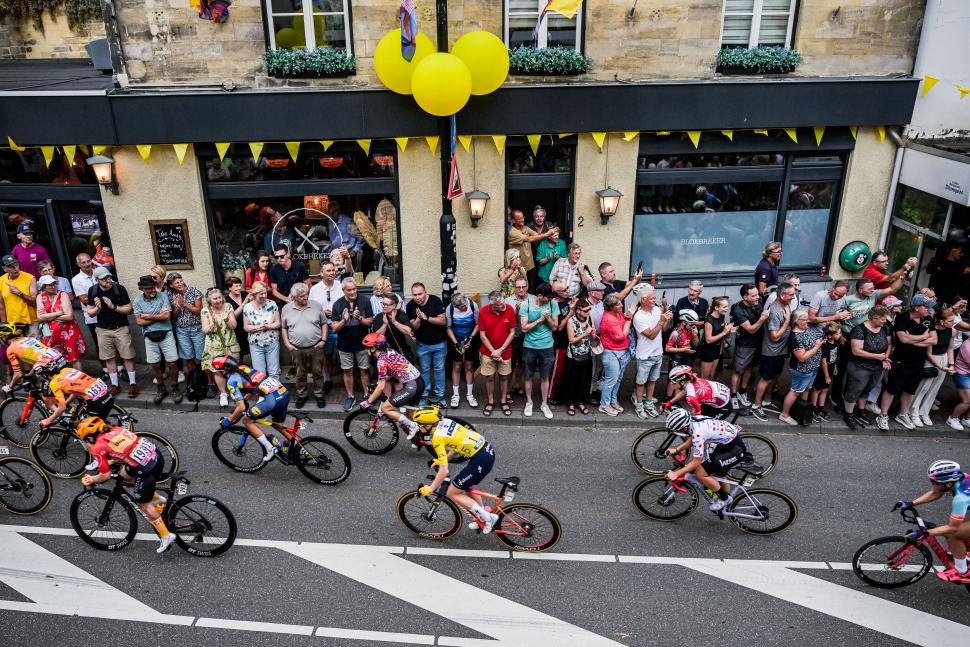 Demi Vollering, 2024 Tour de France Femmes, stage four (A.S.O./Charly Lopez)
Demi Vollering, 2024 Tour de France Femmes, stage four (A.S.O./Charly Lopez)Over a quarter of female pro cyclists outside Women’s WorldTour receive no salary, as new report highlights growing gap between Tour de France stars and “Wild West” lower tier – weeks after British squad collapsed following Tour invite snub
The thrilling racing, staggering roadside crowds, and all-round jubilant atmosphere of this year’s Tour de France Femmes – standing for the first time apart from its Hommes equivalent in what has turned out to be a very successful post-Olympics August slot – is the clearest indication yet of the rapid growth of women’s cycling since the race’s rebirth two years ago.
However, the lonely, if fiercely determined, sight of Uzbekistan’s national road race champion Yanina Kuskova fighting her way to the Tour’s final weekend, the last woman standing of what was in Rotterdam a seven-rider Tashkent City team, only serves to underline the challenges still to be faced as the sport continues its unprecedented development – and the growing gap between the Demi Vollerings at the top and those struggling to keep pace, literally and metaphorically, at the bottom.
The ever-yawning chasm between the Women’s WorldTour, the primary beneficiaries of the new exposure and therefore finances heralded by the return and success of the Tour Femmes, and women’s cycling’s lower tiers has been confirmed in a new report by The Cyclists’ Alliance (TCA), a foundation set up to provide support to female professional cyclists during and after their careers.
> The Tour de France Femmes’ Long and Winding Road: A brief history of the women’s Tour de France
According to the group’s 2024 Annual Rider Survey, which details the views of 100 female pros from 45 different teams and 20 nations, overall salaries are continuing to trend positively since 2018.
That trend, undoubtedly a consequence of the excitement and publicity generated by the Tour de France Femmes (4.3 million viewers in France alone watched the race’s climactic stage on the Tourmalet last year), is most clearly exemplified in the reports that the winner that day in the foggy Pyrenees, and of the 2023 Tour overall, Demi Vollering is set to become the first million euro rider in the sport’s history when she jumps ship from SD Worx to FDJ Suez for 2025.
(A.S.O./Thomas Maheux)
And since the minimum annual salary of €15,000 was introduced in the Women’s WorldTour in 2020, wages have kept increasing, with the average yearly earnings of riders in women’s cycling’s top tier now amounting to €85,000, a figure that could well increase once Vollering’s handsome new contract is finalised.
However, the TCA report also found that beyond this rarefied air at the top of the sport, things are looking decidedly less rosy in a world where an expanding calendar and greater pressure leads to stretched budgets and resources.
According to the 2024 survey, 27 per cent of non-WWT riders still receive no salary or income, while anecdotal evidence indicates that many riders – including those racing this year’s Tour de France Femmes – are even paying their way onto squads, creating an environment where a wealthy background outweighs talent and denies opportunities for others.
Meanwhile, over half of the non-WWT peloton (55 per cent) earn less than €10,000 a year, and 50 per cent of riders are on one-year contracts. Only 44 per cent of riders sought professional assistance when negotiating or signing their contracts too, a figure that gives rise to the theory that the lower tiers of women’s cycling are ripe for exploitation.
(A.S.O./Charly Lopez)
One in four members of the entire women’s peloton currently have a second job to supplement their income alongside racing, with 53 per cent relying on cycling as their sole source of income.
86 per cent of riders, according to the survey’s findings, have either completed or are enrolled in third level or post-secondary education, down from 98 per cent in 2023.
Beyond finances, when asked about their experiences as a pro, one in five said they feel unsafe in their team, a number that has doubled since 2023.
"While we are encouraged by signs of progress, the 2024 survey clearly shows that the journey to equality in women's pro cycling is far from over,” TCA president Iris Slappendel said in a statement.
“The growing divide between World Tour riders and those in other tiers highlights the need for systemic change.
“Recognising these issues, TCA raised concerns with the UCI and sent a letter with several recommendations for change. We remain committed to advocating for all riders, ensuring that every woman in the peloton has the support and resources she needs to thrive.”
(A.S.O./Charly Lopez)
Speaking to Rouleur earlier this month, TCA programme manager Deena Blacking also said that more support is needed for those operating in what she calls cycling’s “Wild West”, an environment where zero regulation on salaries leads to the reality of ‘pro’ cyclists riding grand tours unpaid.
“The riders filling those spaces coming up the pathway are on Conti teams where it’s the Wild West,” Blacking said. “Many riders don’t get paid and some riders end up working multiple jobs, trying to study, but being expected to behave like they’re in a WorldTour team.”
The growing disparity between the haves and have nots of the women’s peloton was underlined earlier this month by the shock collapse of the British team Lifeplus Wahoo, which was partially a consequence of ASO declining to invite the squad to this year’s Tour de France after they raced the 2022 and 2023 editions.
Lifeplus Wahoo, which started out as the Drops Cycling Team in 2016, has been a constant fixture on the domestic and international racing scene over the past nine years, providing a platform for promising British stars such as Alice Barnes, Alice Towers, Joss Lowden, Lizzie Holden, and Maddie Leech, and earning invites to, and securing good placings at, top-tier races such as the Tour of Flanders, Amstel Gold, and Paris-Roubaix.
(A.S.O./Thomas Maheux)
The team also took part in the first two editions of the revamped Tour de France Femmes in 2022 and 2023, with Maike van der Duin sprinting to three top six placings during the 2022 edition, and Ella Wyllie finishing 16th overall last year.
However, according to the team’s co-founders Bob and Tom Varney, the controversial failure to secure an invite to this year’s Tour led to the loss of sponsor bonuses, while the squad also failed to attract a title partner willing to stump up the budget required to cover the minimum wages necessary to compete from next year at women’s cycling’s new second-tier ProTeam level.
“Despite securing a full stable of premium product partners for 2025, we have been unable to sell the naming rights for a figure commensurate with the budget required for a UCI Pro Team Licence application,” the team bosses said, while also citing the rising costs of running and maintaining a team and the after-effects of having 14 bikes stolen at the Tour of Britain – described at the time as “an absolute hammer blow to our over-achieving team already on a stretched budget” – as factors behind the squad’s sudden demise.
“Our aim has always been to progress to Pro Team level and ultimately become a World Tour team,” they said.
“With uncertainty surrounding the viability of the project at Continental level, we no longer have the appetite to struggle to deliver our professional vision on a minimum budget at this largely unregulated level.”
After obtaining a PhD, lecturing, and hosting a history podcast at Queen’s University Belfast, Ryan joined road.cc in December 2021 and since then has kept the site’s readers and listeners informed and enthralled (well at least occasionally) on news, the live blog, and the road.cc Podcast. After boarding a wrong bus at the world championships and ruining a good pair of jeans at the cyclocross, he now serves as road.cc’s senior news writer. Before his foray into cycling journalism, he wallowed in the equally pitiless world of academia, where he wrote a book about Victorian politics and droned on about cycling and bikes to classes of bored students (while taking every chance he could get to talk about cycling in print or on the radio). He can be found riding his bike very slowly around the narrow, scenic country lanes of Co. Down.
Latest Comments
- Secret_squirrel 4 hours 47 min ago
Um...no. Spitting is grim and there is never any excuse.
- Another_MAMIL 7 hours 43 min ago
Q36.5 Gregarius Essential Bib Knickers fit the bill: 3/4 length bib tights for warm weather.
- Rendel Harris 7 hours 54 min ago
Jolly good. Only it hasn't been and it is still a public bridleway. Feel free to look it up.
- jaymack 8 hours 44 min ago
"...it feels more like a £100+ jersey". It's almost as if cycling apparel is over priced.
- mike the bike 9 hours 56 min ago
I've had a few Lezyne bits and bobs over the years and while it's true I've never bothered to return anything under warranty, I've had a couple of...
- mark1a 8 hours 59 min ago
There's a transition period. For the benefit in kind (BIK) tax to the employee, it will be treated as a goods vehicle as it is now (rather than a...
- hawkinspeter 10 hours 8 min ago
Parents say East Bristol Liveable Neighbourhood makes roads '100 times safer' for children:...
- mdavidford 10 hours 14 min ago
Isn't basically all carbon recycled? From stars?
- velodinho 11 hours 30 min ago
As witnessed at so many infrastructure improvement projects similar to this one, all those who object should ignore the consultation and pray at...
- Nagai74 13 hours 18 min ago
It's a DLO to those in the trade.
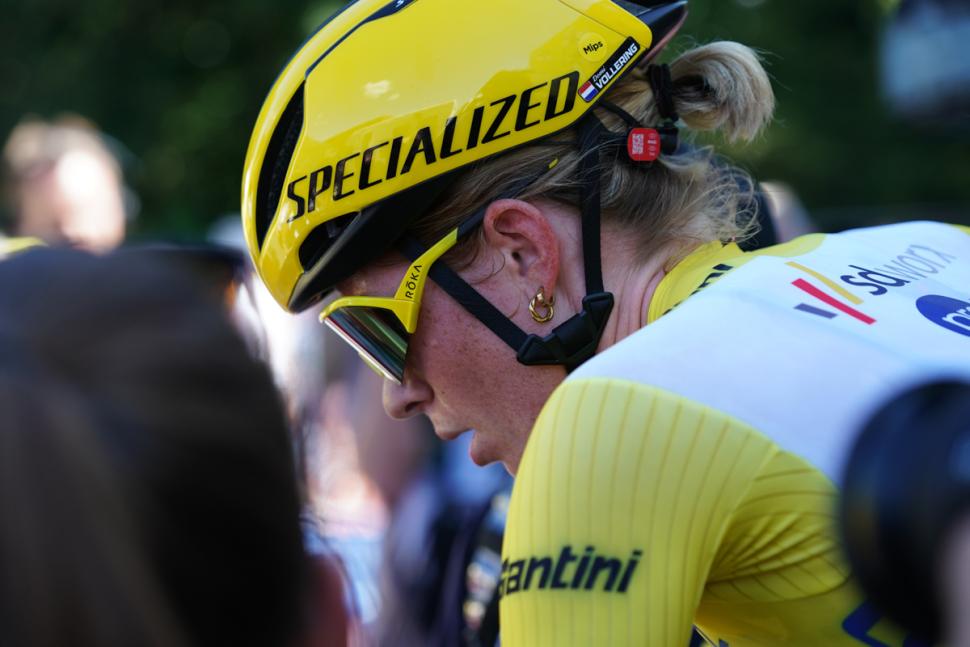
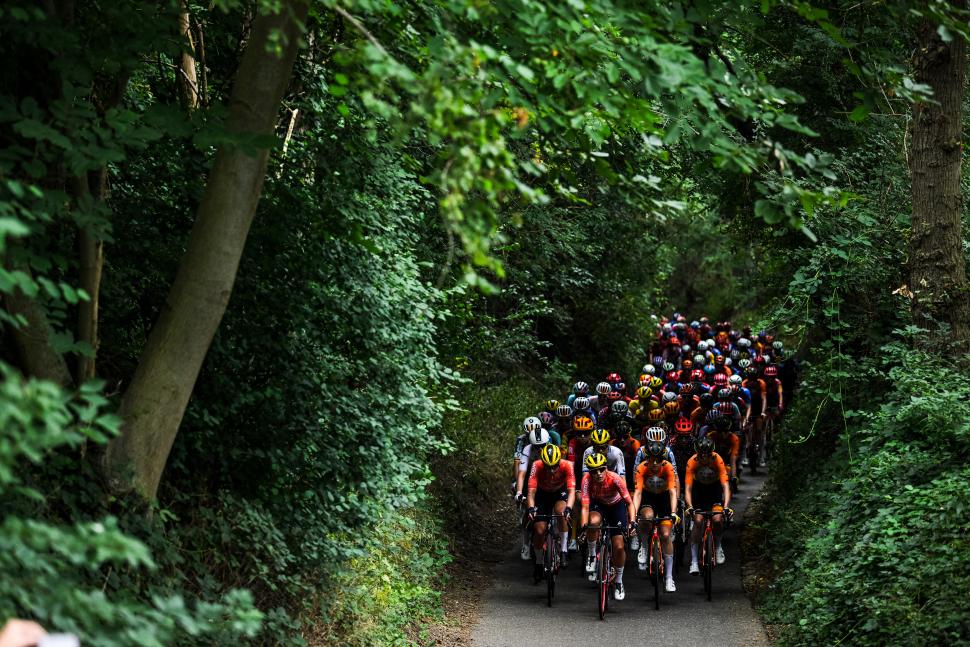
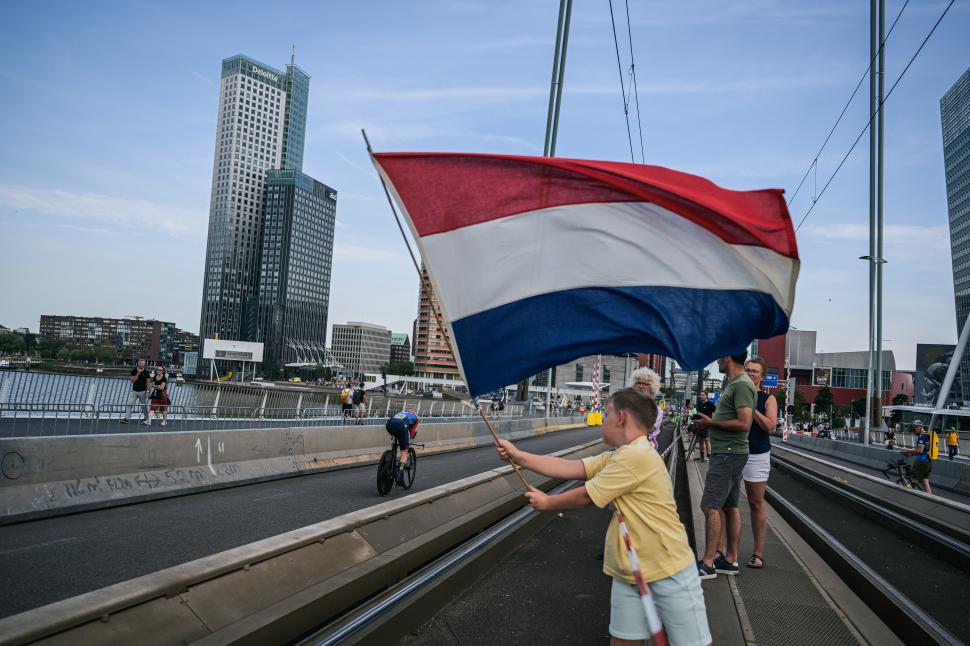
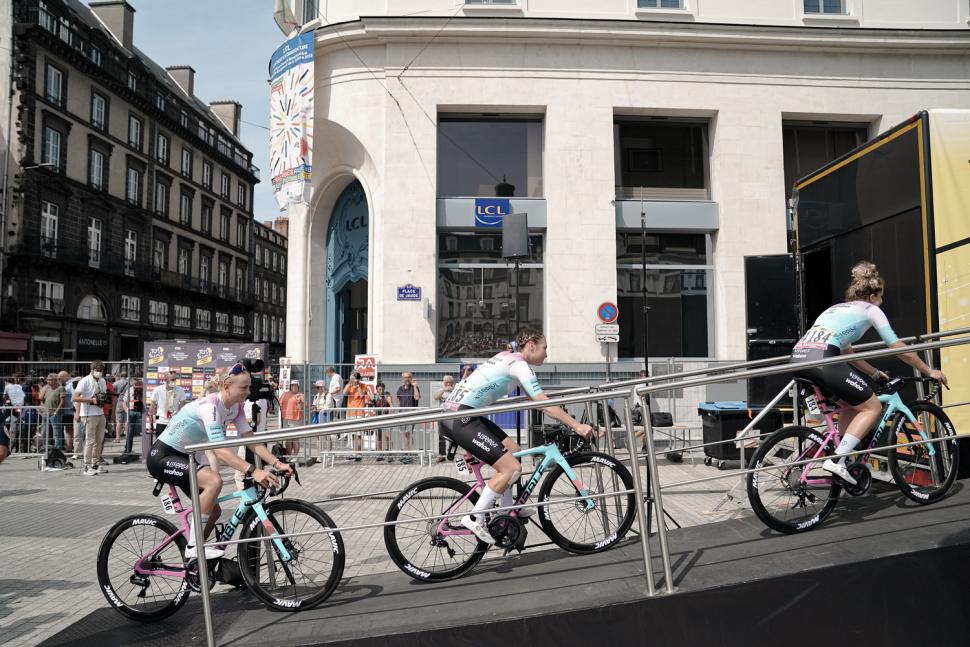
Add new comment
2 comments
I think that women's football has shown us that you've got to put the money in, and I mean from TV coverage, the sponsors will follow. It's 2024 and a shocking state of affairs!
Interesting to see that the new co-owner of Manchester Utd, has the sme attitude towards women's football as the owner of the Ineos Cycing team has towards women's cycle racing.